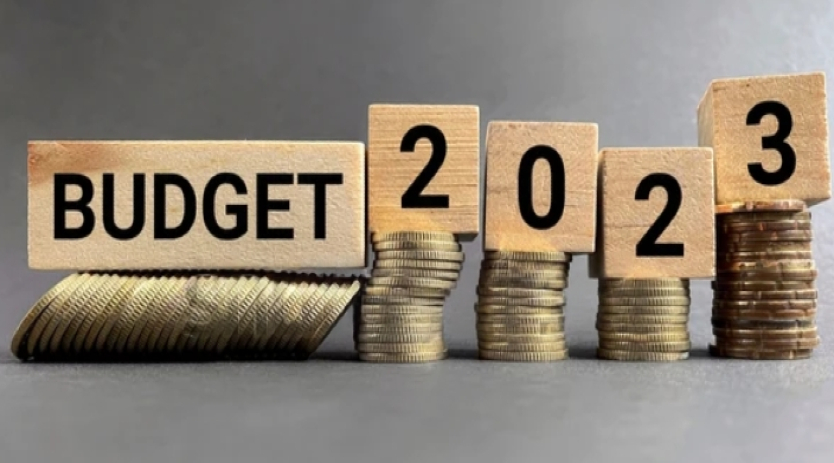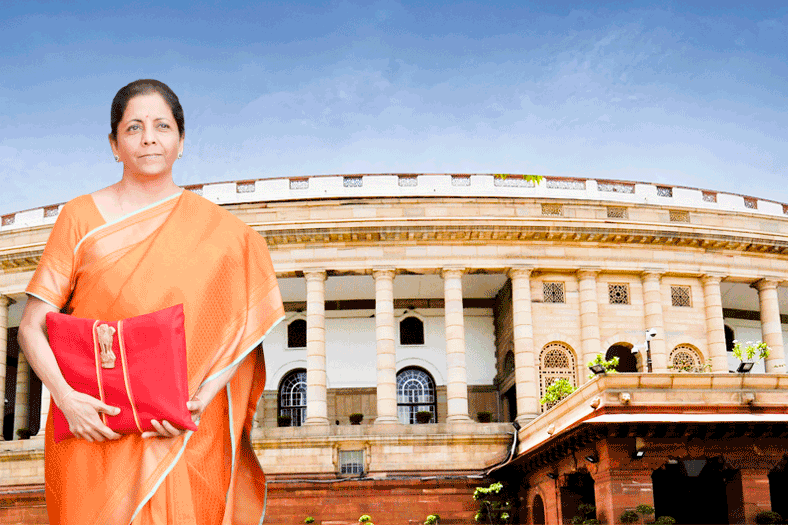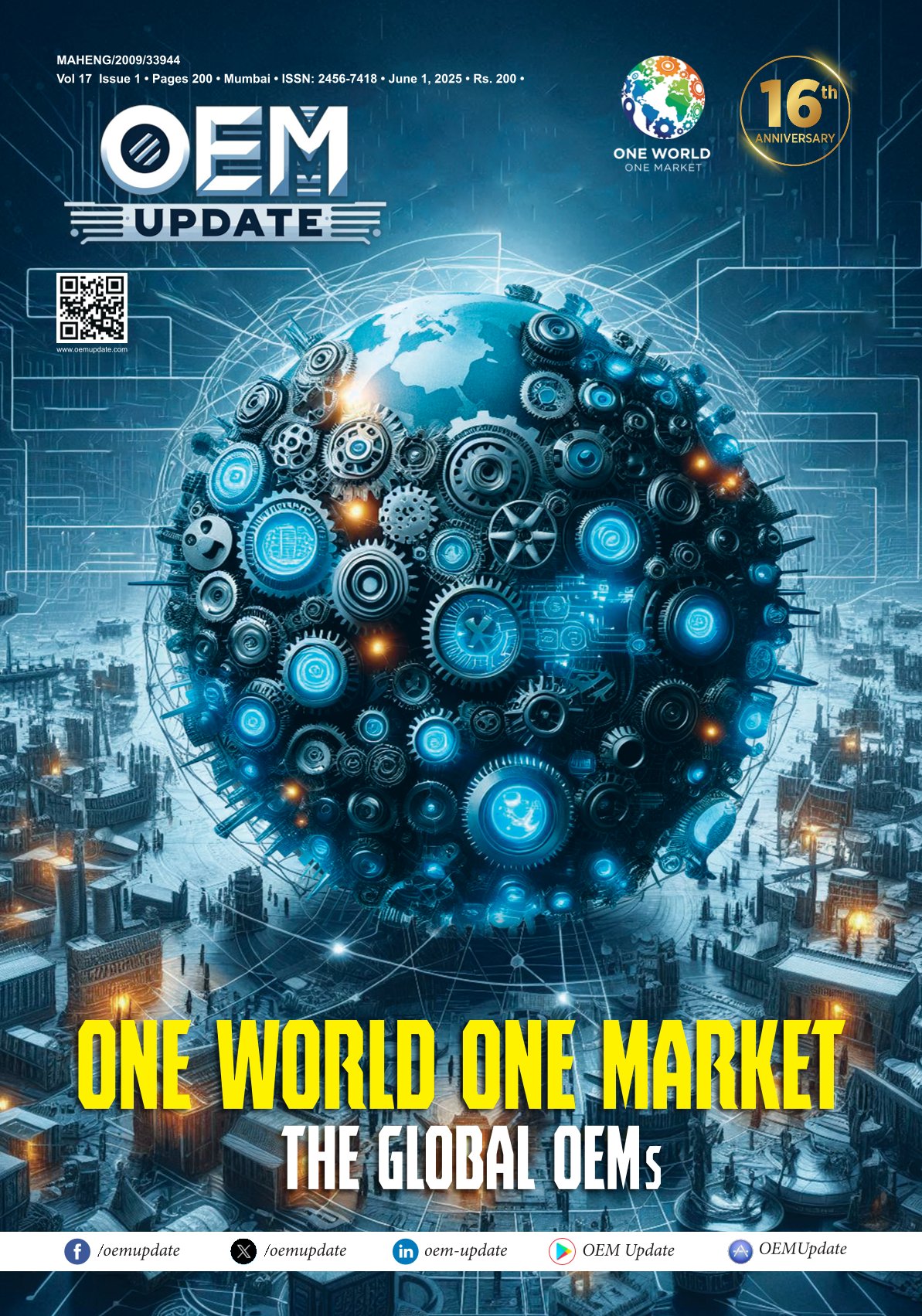Industry budget 2024-25 expectations
By OEM Update Editorial January 30, 2024 12:09 pm IST
Focus on Make in India initiative and incentives for EVs to boost manufacturing.
The interim budget for 2023–24 is scheduled to be presented by Finance Minister Nirmala Sitharaman on February 1, 2024. The Indian budget provides insights into the government’s economic strategies, significantly influencing the economy and citizens’ lives. Scheduled for February 1, the Union Budget 2024-25 faces the challenge of balancing fiscal prudence and populist measures, especially with general elections hovering around. Key sectors like pharma, auto, and real estate have presented their Budget expectations to OEM Update magazine.
In the upcoming interim budget, the government is contemplating expanding the Production-Linked Incentive (PLI) scheme to bolster the manufacturing sector and employment opportunities. The scheme, initially introduced in 2021, currently includes 14 sectors, and additional sectors may be included. Moreover, the FAME III scheme is set to power e-buses in this budget.
The automotive industry is particularly optimistic, anticipating a series of policies from the Finance Minister to promote global Make-in-India initiatives and support the automotive ecosystem. The logistics sector is positioned for transformative initiatives to propel India toward achieving a USD 5 trillion economy.
Industry calls for schemes and incentives for EV growth
“As EV sales in the country show healthy growth, we expect the government to propose budgetary provision to extend the FAME II (Faster Adoption and Manufacturing Electric Vehicles) scheme to support EV growth. The government policies and regulatory norms have been favourable for the automotive industry so far. In the interim budget, the government is expected to continue with the existing policy and regulatory framework”, believes Veer Singh, CEO of Lord’s Automative Pvt. Ltd.
Reductions in GST rates for EVs and charging stations
As the electric vehicle (EV) industry gears up for substantial growth in the coming years, the government must foster a supportive ecosystem. According to Dinesh Arjun, Co-founder, Raptee, “To stimulate investment opportunities, there should be encouragement for potential investors, coupled with essential reductions in GST rates for electric vehicles and charging stations. Additionally, easing the burden on the industry can be achieved through a decrease in import duties on electronic components. The sector is particularly hopeful for a significant GST reduction, aiming to bring it down from 18 to 5 percent specifically for lithium-ion battery packs and cells, given their pivotal role in the EV sector. He highlights that the concerted effort in the budget towards enhancing the ease of doing business and facilitating the entry of local players into the market is crucial.
Addressing aspects like component localisation and ensuring easy access to necessary components will empower Indian companies, both large and small, to develop competitive products at competitive prices, further solidifying the sector’s growth potential, he added.
Propelling the widespread adoption of EVs as a sustainable mode of transportation
Manideep Katepalli, Co-Founder at BikeWo expects, “Despite last year’s commendable 33% surge in EV registrations, our industry encounters persistent challenges. Chief among these hurdles is the imperative need for robust charging infrastructure, which is pivotal in inspiring confidence among potential buyers and propelling the widespread adoption of electric vehicles (EVs) as a sustainable mode of transportation.
Another barrier remains the relatively higher initial cost of EVs, often deterring consumers. However, the promise of life tax subsidies for electric vehicles and the availability of accessible EV financing options hold immense potential to mitigate this challenge. The integration of EV infrastructure into Priority Sector Lending (PSL) is poised to bolster credit flow into the sector by mandating financial institutions to provide support, thus promising a significant boon.
A supportive regulatory framework and financial incentives to foster research and development within the EV sector are indispensable pillars. These measures drive innovation and attract investments, creating an environment conducive to widespread EV adoption. Ultimately, these strategic initiatives are pivotal in establishing an enduringly sustainable and eco-friendly transportation ecosystem.”
PLI scheme beyond Advanced Chemistry Cell manufacturing
Shubham Vishvakarma, Co-Founder and Chief of Process Engineering at Metastable Materials, a pioneering Lithium-ion battery recycling startup with a mission to transform the recycling industry through cutting-edge technology, said, “As we anticipate the 2024 budget announcement, we hope for a forward-looking budget that reflects India’s commitment to sustainability and technology advancement. A large volume of India’s end-of-life Lithium-ion batteries is exported globally for recycling or just processed as an intermediate black mass and then exported. Hence, massive R&D investments are required to create strong competencies and lab testing facilities for proper end-of-life Lithium-ion battery recycling. This contributes to responsible environmentalism and nurtures a talented pool of individuals.”
He adds, “Another area we are hopeful for is the Production-Linked Incentive (PLI), an extension to battery recycling. This would also be a strategic approach as by expanding the range of the scheme beyond just the Advanced Chemistry Cell manufacturing; we open up the opportunity to capture the entire value chain. This extension will incentivise the setting up of homegrown recycling firms instead of shipping away the dead batteries. We also recommend that Lithium-ion batteries be recycled into the Carbon Credit Trading Scheme. This inclusion, particularly for the feasibility of negative-value battery chemistries, will substantially support India’s position in the carbon credit markets and demonstrate our continued dedication to sustainable solutions.”
Incentivising adoption of new-age technologies
Sharing his opinion, Sachin Agrawal, CEO & Co-founder, Bizongo says, “As India aspires to achieve a steel manufacturing capacity of 300 MT by 2030, the upcoming budget is anticipated to incentivise the adoption of new-age technologies in the steel sector, boosting efficiency and production. Addressing environmental concerns and ensuring a sustainable growth trajectory will be crucial aspects for the steel industry in the budgetary considerations.”
He expresses, “From the aluminium industry’s perspective, the budget is expected to introduce measures that encourage research and development, fostering innovation and technological advancements. Also acknowledging the significance of the aluminium sector in various applications, including automotive, aerospace, and packaging, the budget might introduce targeted incentives that stimulate demand and drive market expansion.”
With a focus on potential benefits for the broader economic landscape within the metals and mining industry, Arun Misra, CEO, Hindustan Zinc Limited, shared, “India’s AmritKaal presents a pivotal opportunity for sustainable growth. As industry leaders, we see potential in unlocking infrastructure development, industrial expansion, and a greener future. Optimising mining holds key benefits. Exploration is crucial for sustainable development. The total land mass of our county is 32.87 lakh Sq. Km. While the obvious geological potential area explored by GSI is 6.88 lakh sq. km. only 2 per cent of OGP (obvious geological potential) has been taken to the production level. The upcoming budget could encourage exploration by facilitating approvals and incentivising experienced agencies, as this segment holds huge potential for private industry to explore India’s mineral potential. Streamlining community development efforts is essential. We urge the budget to look at consolidating DMF and CSR funds into a single entity that could simplify administration and maximise impact.”
Arun says, “Mining infrastructure needs modernising to maintain global competitiveness. Import duty relaxations on essential machinery and incentives for sustainable mining technologies could benefit both production and exports. Further proposals include royalty adjustments to incentivise exploration, exploring beyond mining leases to diversify resources, and leveraging mine tailings for resource efficiency. The zinc industry anticipates increased infrastructure projects driving demand for this durable and sustainable material. Implementing Production Linked Incentives for downstream metal processing could create jobs, empower technological advancements, and contribute to India’s economic goals.”
“We believe the AmritKaal budget can lay the foundation for a self-sustaining economy built on sustainability. We look forward to policies that guide India towards a prosperous and responsible future”, he adds.
DeepTech is the great multiplier
Avi Dahiya, the Founder & CEO of Twyn says,”Technology has practically transformed how we work and live. However, advancements in DeepTech, such as Artificial Intelligence, have a ‘multiplier change effect’ not just in one particular field but across industries, right from national defence to payments to aerospace. Adding to it, this change delta is not just incremental but exponential. Hence, investing in homegrown Innovation becomes quintessential for every country.”He explains further, “Innovation is at the core of any DeepTech enterprise as they are often focused on solving for real-world complexities through advanced technologies. However, there is a high risk associated with DeepTech startups, and unlike other startups, they also require larger investments, given that the R&D costs are significantly higher. Besides, such startups have a longer gestation period. With the growing prominence and implementation of DeepTech across various industries, we expect increased investment in this space in the forthcoming budget to further enhance R&D mechanisms. Increased investment will also encourage entrepreneurs to explore new ideas and open up possibilities for innovation in mainstream industries. To realise the vision of transforming 2020’s into a ‘Techade’ for India, we expect to see initiatives to enhance collaboration between the industry, regulator and academia. The sector’s growth has also led to an increased demand for tech talent in the country. The upcoming budget should focus on increased investments in the skill development of the youth in the technology sector. India is well poised to become the world’s technology and innovation hub in the coming decades, and this can only be done by strengthening and realising the full potential of DeepTech.”
Aviation sector
Prem Kumar Vislawath, CEO and Founder, Marut Drones remarks, “The Central government has been on the right path in paving the way for large-scale embrace of drones in India with its decision to provide 15,000 agricultural drones free of cost to rural women under the Drone Didi initiative. The aviation sector is bound to see incredible changes in the coming years. In budget 2024, we hope to see ease of regulations for startups and consumers, along with easy financing for drones for commercial purposes. A 100 percent subsidy to farmers on drone training certification programs through Skill India would support the drone ecosystem of the country. GST waiver on drones, allied products, software, training, and licenses could be an excellent step towards that future. We hope to see regulations becoming easier for startups and consumers. For instance, a PLI scheme extension for components and manufacturers would greatly incentivise startups. Easy financing for drones for commercial purposes can go a long way in making them affordable to all sections of society. Fine-tuning policies and quicker clearances will help the drone industry achieve its potential to make India a drone hub by 2030.”
Investments in the ecosystem to accelerate India’s adoption of EVs
Yatin Gupte, Chairman & Managing Director, Wardwizard Innovations & Mobility, says The visionary stance of the Union Budget 2023-24 towards sustainable mobility played a pivotal role in the successful realisation of the target of 1 million electric two-wheelers, providing crucial support to the industry. Looking ahead to the Union Budget 2024-25, there is anticipation for a further boost in the country’s support for Electric Vehicle (EV) infrastructure. Optimism surrounds the potential reduction in both input and output Goods and Service Tax (GST) for EVs and spare parts—a move that would significantly enhance accessibility and broaden the reach to the masses. Additionally, hopes are high for increased financing opportunities, propelling research and development to a larger scale. This, in turn, would open doors for substantial investments in the ecosystem, accelerating India’s overall adoption of electric vehicles. A crucial aspect lies in the call for added incentives directed at Indian Original Equipment Manufacturers (OEMs), aiming to stimulate advancements in localising EV technology, fortifying the indigenous industry, and contributing to a more self-reliant and progressive economic landscape for the industry.”
Revision of GST rates on vital spare parts of the EVs
Dr. Darshan Rana, Chairman and Managing Director, Erisha E Mobility Private Limited expressed, “Contributing significantly to the economy, the Electric Vehicle industry has demonstrated a sizable potential to strengthen the economic growth and progress of the country. As we look towards the upcoming Interim Budget 2024, we expect Finance Minister Nirmala Sitharaman will revisit GST rates on the vital spare parts of the EVs besides extending the Faster Adoption and Manufacturing of Electric Vehicles (FAME) subsidy scheme for widespread adoption of EVs, which offer environmentally friendly and sustainable transportation solutions. “
FAME scheme extension to more sectors for a sustainable and eco-friendly future
Hyder Khan, CEO, Godawari Electric Motors anticipates the upcoming budget with optimism and a sincere hope for increased support towards the electric mobility sector. The extension and enhancement of the FAME (Faster Adoption and Manufacturing of Hybrid and Electric Vehicles) scheme would propel India towards a sustainable and eco-friendly future. Substantial subsidies for electric vehicles and related infrastructure would incentivise consumers and bolster the growth of our industry. These measures will promote cleaner transportation and stimulate innovation and job creation. He expects the budget to recognise electric mobility’s pivotal role in achieving environmental goals and economic development.” He adds, “The government will continue to foster a conducive ecosystem for the electric vehicle industry to thrive.”
Usage-based incentives for EV drivers will be a game-changer
Akash Gupta, Co-Founder and CEO, Zypp Electric believes prioritising the electric vehicle (EV) sector is crucial for a sustainable future. First, inclusion in the priority lending scheme will fuel growth by facilitating easier access to capital. A reduction in GST for EV services from 18 percent to 5 percent is imperative to accelerate the adoption of EV-led delivery services. While EV purchases enjoy a 5 percent GST rate compared to 28 percent for internal combustion engine (ICE) vehicles, a similar distinction must extend to services. Furthermore, introducing usage-based incentives for EV drivers and existing FAME buyer incentives will be a game-changer. Rewarding users based on carbon savings and kilometres driven creates a tangible incentive for sustainable choices.
Addressing the last-mile delivery gap is equally critical. Recognising last-mile delivery as a distinct sector under logistics policies is essential, given that one-third of shipments fall within this category. Establishing industry standards and implementing standard operating procedures (SOPs) will enhance efficiency and foster growth in this vital logistics industry segment.
Research and Development
The electric vehicle (EV) industry in India has gained momentum thanks to the government’s efforts in promoting EV adoption through various initiatives. Niranjan Nayak, MD, Delta Electronics India adds, “However, we see untapped potential, and the upcoming budget could further boost the industry’s development. Firstly, we expect the government to continue offering incentives and subsidies for manufacturing and purchasing EVs. These measures effectively drive demand and lower upfront costs. Extending these incentives and reducing import duties on EV components can make electric vehicles more affordable for everyone. Additionally, a critical focus should be on establishing a widespread charging infrastructure network nationwide. Insufficient charging stations are a concern for potential EV buyers.”
Allocating budget funds for strategically locating charging stations on highways, in cities, and in residential areas is essential. Furthermore, the government should prioritise research and development in the EV sector. Continued investment in advanced technologies, like battery technology and energy storage solutions, is crucial for long-term growth and sustainability. Provisions in the budget supporting innovation and collaboration between industry players and research institutions would be beneficial. In conclusion, the potential of the EV industry in India is significant, and the upcoming budget can play a pivotal role in realizing this potential. Through incentives, developing charging infrastructure, and investing in research and development, the government can further stimulate the sector’s growth. Delta is committed to contributing to the EV industry’s development and eagerly anticipates the budget announcement.”
Empowering MSMEs for India’s manufacturing growth
Sonam Motwani, CEO and Founder, Karkhana.io remarks, “As we eagerly look towards the upcoming budget, we are hoping for a thoughtful approach that acknowledges the crucial role of MSMEs (Micro, Small, and Medium Enterprises) in India’s manufacturing sector. It is not just about strengthening the backbone of the industry; it is about generating jobs, boosting exports, and giving a significant push to our country’s economic growth.”
She visions, “A thriving MSME community is key to transforming the manufacturing landscape in India and resonates with the government’s vision for a self-reliant nation, “Aatmanirbhar Bharat”. By investing in initiatives like industrial clusters and providing ready-to-go workspaces, we can empower these enterprises, making it simpler for them to start and operate while reducing bureaucratic hurdles. Moreover, focusing on training programs to enhance technical skills and improve the overall workplace environment through initiatives that pool the purchasing power of MSMEs can help us seize the opportunities within the manufacturing sector. It is about fostering our companies and workforce to prosper in the dynamic Indian manufacturing environment.”
PLI Schemes
Dilip Sawhney, Managing Director, Rockwell Automation India notes that the growth of Indian manufacturing will be driven by proactive government policies such as sectoral PLI schemes, VGF schemes, export promotion initiatives, and various other reforms. There is optimism in the air as we hope that the budget strengthens policies, sustaining the current momentum. While global macroeconomic factors are providing a strong impetus for India to emerge as a manufacturing powerhouse, the budget should effectively leverage public investments towards Industrial R&D, Clean Tech and Workforce skill programs in futuristic technologies such as AI. A renewed focus on the SAMARTH Udyog Bharat 4.0 initiative is necessary. The budget should actively encourage the adoption of smart, digital, and connected manufacturing technologies across the industry value chain, enhancing the competitiveness of the Indian manufacturing and capital goods sector. Furthermore, we recommend the introduction of more PLI schemes, specifically tailored for sub-sectoral areas within the manufacturing domain. This targeted approach will boost smaller or less-focused segments of the supply chain, fostering a well-rounded and resilient manufacturing ecosystem for India’s sustainable growth, and making India integral to global value chains.”
Cookie Consent
We use cookies to personalize your experience. By continuing to visit this website you agree to our Terms & Conditions, Privacy Policy and Cookie Policy.







